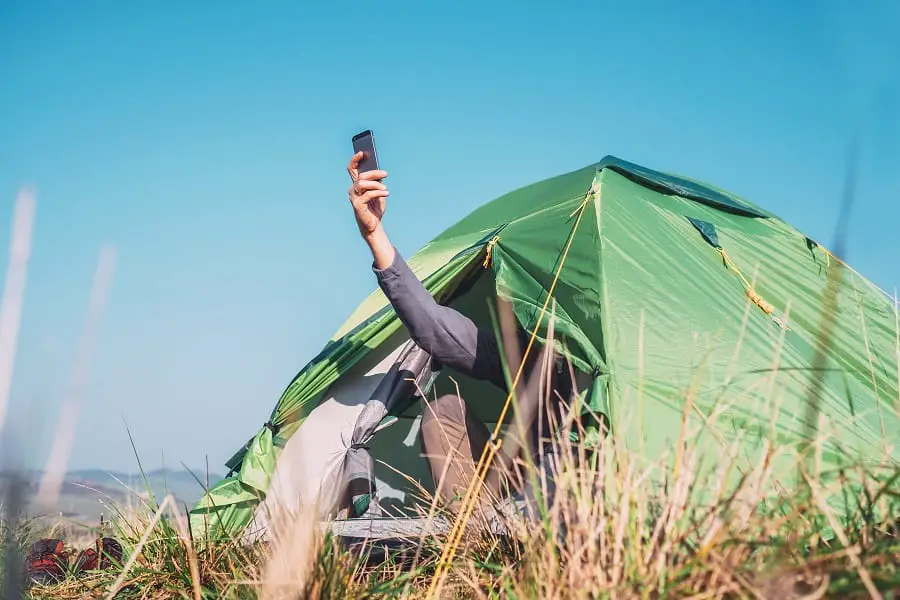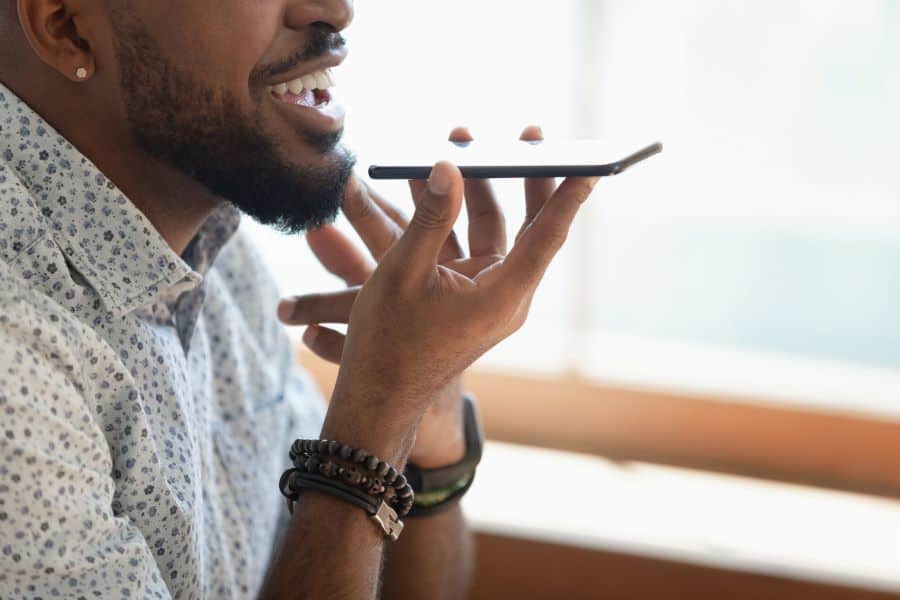
We all seem to be connected to our phone or computers throughout the day, every day. And it makes sense that when you go on an overlanding trip you might want to disconnect for a while. However, having a cell phone might not be a bad idea on a long overlanding trip.
Taking your phone on an Overlanding trip may seem inconvenient but it is not without its benefits. Here are 15 times when you’ll be really glad you had your phone with you.
- Calling for help
- Navigation
- International calling
- Phone as a translator
- Phone as a source of light
- Emergency phone calls and texts
- To check for travel weather updates
- Find out activities that are going on around you
- Taking photos/ videos at scenic sites
- Use as an alarm clock
- To make currency conversions
- To read or watch e-books and videos
- To play games when bored
- To connect with family and friends back home
- To store important information
Let’s take a deeper dive into all the ways that having a cell phone benefits your overlanding experience.
15 Reasons You Should Take Your Cell Phone When Overlanding
1. Calling For Help
That flat tire might not be a big deal if you’re near a town. But what if there are no other cars for the next 20 miles? There may be places where rescue services will come to your assistance or at least transport you to a nearby village. If something does happen, it’s nice to know that help is available.
2. Navigation
Getting lost is a lot easier when you don’t have access to your phone. If you’re driving through a foreign country it’s even more perilous. For example, if you get ‘turned around’, not everyone speaks English and they may not be inclined to help out a foreigner. Having a map on your phone is a lifesaver in these situations.
3. International Calling
Few people speak enough foreign languages to be comfortable having conversations with out-of-towners. Even if you do, the ability to simply call a friend within seconds can save a lot of misunderstandings.
4. Phone as a Translator

Having access to your phone on the road is crucial if you ever want to make friends with the locals. Knowing how to say “thank you” and “good morning” is a great place to start. But even more important are phrases like “I don’t understand”, “Where can I find _?” or “Please help me”. Here is a post by Google about this function.
5. Phone as a Source of Light
This one is a no-brainer. Who hasn’t been out at night, broken down or lost, and wished they had something to illuminate their path? Even if it’s not for safety, it’s nice to find your way without having to stumble around in the dark.
6. Emergency Phone Calls and Texts
Phone service is not always reliable, even if you have a signal, you must make the most of it. On buses or trains, emergency calls are free as operators are responsible for your safety.
7. Check for Travel/ Weather Updates when Overlanding
Even when you’re in the middle of nowhere, you’ll still have access to any information that is available. This way, if you have enough information, you can make an informed decision on where to go next. You may even be able to avoid it completely.
8. Find Out What’s Going On Around You
Even if you’re in the middle of nowhere, it’s nice to know what else is out there. You can use this knowledge to plan your route for next time or consider going somewhere new. It also comes in handy when asking for directions. Even though people try to be helpful, they don’t always truly know the directions.
9. Taking Photos/ Videos at Scenic Sights
If you’re photographing, whether it’s to use it as a future reference or just to show your friends back home, having your phone on hand is helpful. Remember that you won’t be able to upload anything onto social media sites while Overlanding though.
10. Use as an Alarm Clock
You can’t exactly set your watch to wake up when you’re in the middle of nowhere. Having a device that will wake you up is always helpful so you don’t miss anything.
11. Currency Conversions
If you’re in a foreign country, it’s often hard to tell which bills are real and which ones aren’t. You don’t have to carry around a bunch of different currencies just in case you come upon something that doesn’t take American money. If the place you’re going to does accept USD then this point is irrelevant. But if they don’t then you may need to have a quick reference to help you.
12. Read/ Watch eBooks and Videos
Even if you can’t handle watching a movie on a cell phone screen, there are plenty of other things out there for your entertainment. You can read books or watch video courses that will help you with whatever it is you’re doing.
13. Play Games When You’re Bored
You might as well use your time productively and hang out with your friends over a game of Words With Friends. You can also try catching up on all those Flappy Bird scores if that’s what floats your boat.
14. Connect with Family and Friends Back Home
There’s nothing wrong with wanting to let your loved ones know that you’re still alive. Even if it’s just a quick Facebook post, friends will worry less about you getting out of the safari.
15. Store Important Information
Wherever you’re going, whether halfway across the globe or just off the beaten path, there’s no telling what might happen. Keeping all of your numbers and addresses in your contact list lets people know where to start looking. This way, if you get lost and can’t tell anyone where you are, they can find helpful info.
Wrapping Up
While, as much as we’d like, we can’t always afford the luxury of having a cell phone in every port. There are so many places where phones don’t work, even in our own countries.
In addition, you can avoid the high roaming fees associated with using it. There are plenty of reasons to take your cell phone with you when Overlanding. Peace of mind comes with having something that can serve as an emergency kit in desperate situations.
Check out our ‘crossing borders’ post here.

